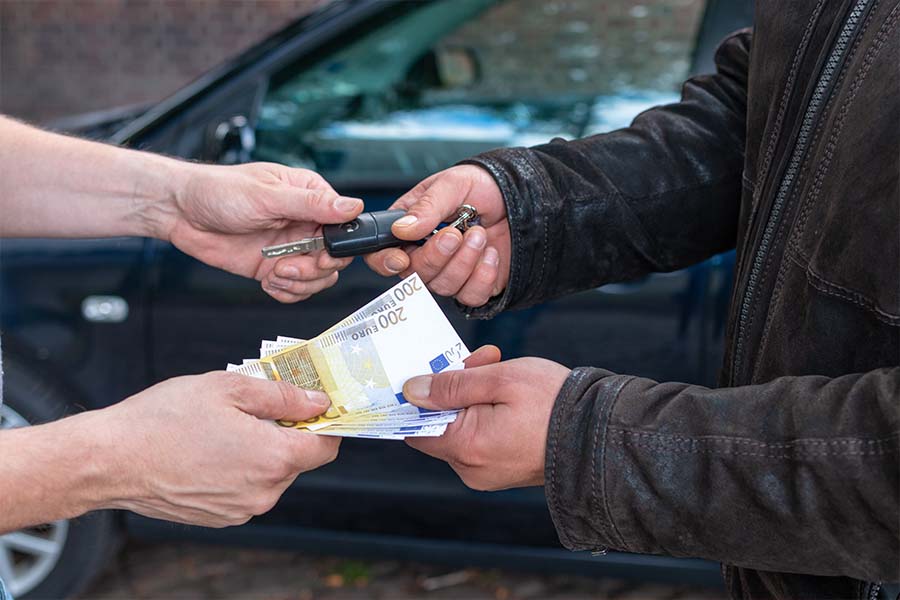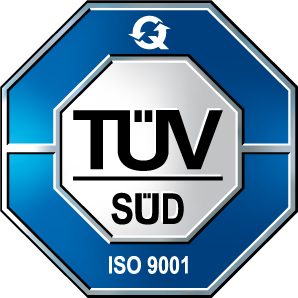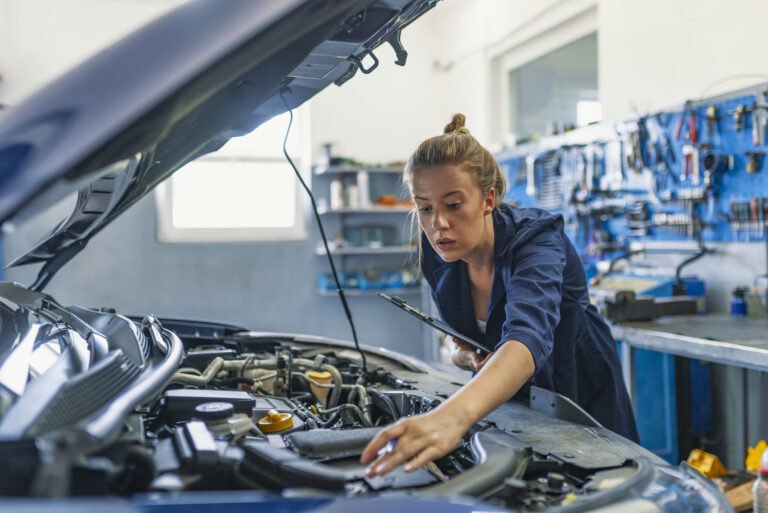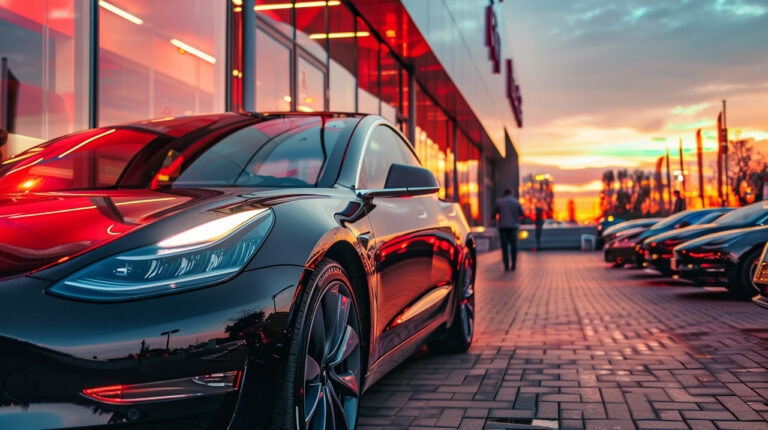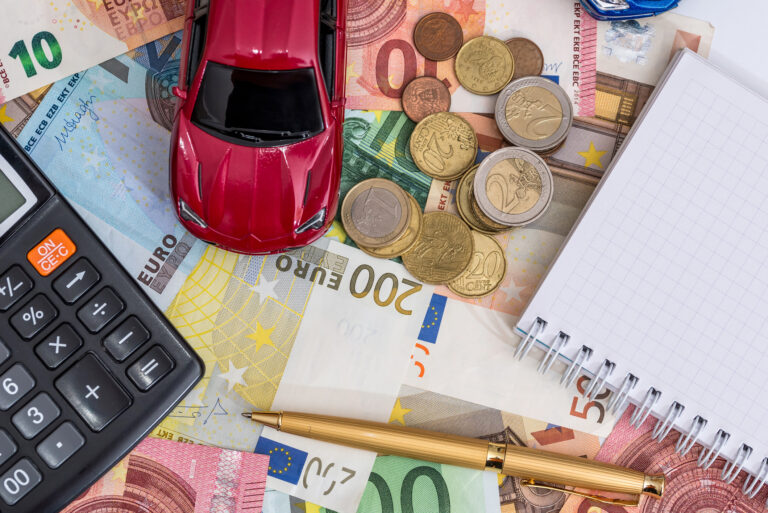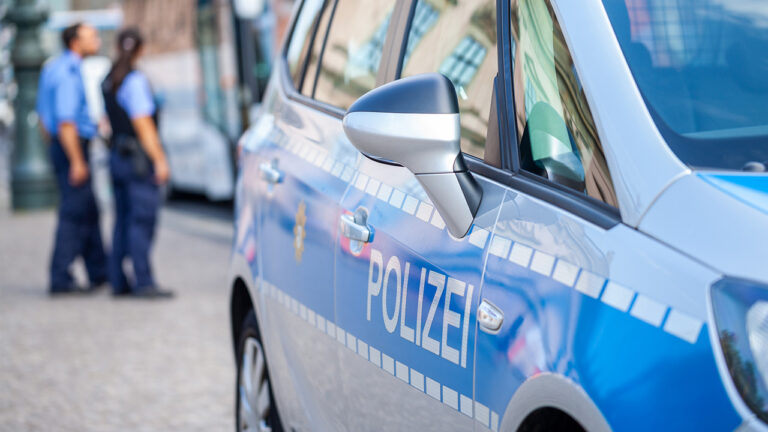After an accident, many drivers ask themselves whether they can still sell their crashed car. Although it is not easy to sell an accident-damaged car, there are often worthwhile alternatives to the scrapyard.
In this guide, we explain what you need to know in order to sell your accident-damaged car.
When is my crashed vehicle considered an "accident vehicle"?
Not every car that has been involved in an accident has to be labelled as an accident vehicle straight away. But when is a vehicle involved in an accident considered an accident vehicle?
Unfortunately, the legislator has not made any clear regulations on this. In legal terms, an accident is any event that causes sudden, unintentional and permanent physical or mechanical damage. This includes not only a road traffic accident, but also the effects of fire, water or hail.
The boundary between minor damage and accident damage is also not entirely clear. By default, you can orientate yourself on the minor damage limit of €200. Small scratches or dents still fall under the minor damage limit. Vehicles with such minimal damage do not have to be labelled as accident vehicles.
You do not have to mention minor damage when selling, but you are obliged to provide information on request. If the damage is above the minor damage threshold, you must disclose it. If you conceal the damage, you are acting fraudulently. If you have not informed the buyer of the actual condition, contrary to your better judgement, the buyer is entitled to compensation. The exclusion of liability also loses its validity in a private sale. You will then quickly slip into the warranty for two years. A cancellation of the purchase is also conceivable.
Selling a professionally repaired vehicle
Your vehicle has already been professionally repaired after a road accident and you would now like to sell it?
Then we have good news for you: a vehicle that has had all the damage professionally repaired does not have to lose much in price compared to an accident-free used car. The price is often only slightly lower than that of an accident-free vehicle.
Often the dealership that carried out the manufacturer-compliant repair is also a good contact for the trade-in of the vehicle.
Why: The workshop now knows exactly how good the vehicle is and which parts have been fitted. The sellers often already have a prospective buyer in mind to whom they can resell the refurbished vehicle. At the same time, the purchase of the successor vehicle generates additional margin, which can be passed on to you as a price advantage.
You must be able to document the repair at the time of sale. As a rule, the detailed repair invoice from the workshop and the damage report are sufficient for this.
Especially when selling a used car, it is important to be transparent about the damage that has been repaired. Buyers tend to be suspicious and the more transparent you are, the more trust you can gain.
NotePrivate sellers can exclude liability in the purchase contract when selling their accident vehicle. This will ensure that they do not have to pay for existing but hidden damage. Do not give any guarantees that may turn out to be false in retrospect. Guarantees refer to assurances, for example, as to whether the original engine has been installed. Describe the condition of the vehicle as precisely as possible in the purchase contract. Document the accident with the same care.
Selling a totalled car
Would you like to sell your car with a total loss? Firstly, it is important to know when a total loss has occurred. An economic total loss is when the repair is no longer profitable. If a vehicle of the same type and quality can be obtained on the market for less money than the professional repair would cost, it is usually a so-called economic total loss. The car can often still be driven, but would no longer be authorised for road use in this condition.
The hard limit to total loss is reached if the repair exceeds 130% of the calculated replacement value (at what price can a vehicle of the same type and quality currently be bought on the market).
The residual value of the damaged vehicle is determined as part of the appraisal by placing a meaningful advert on various residual value exchanges. This work is carried out by the expert. Regional and national vehicle buyers place binding purchase offers on the residual value exchanges. The insurance company liable to pay benefits will accept the highest residual value offer as the sale proceeds to be realised and reduce its benefits by precisely this amount. The reasoning is simple: the missing money for replacement is ultimately to be collected from the buyer of the total loss vehicle.
Sample calculation:
- Repair to cost €13,500
- Replacement value is stated as €10,000
The repair costs would therefore exceed 130% of the price of a replacement vehicle of the same type and quality. The vehicle is therefore an economic total loss.
- the appraiser determines a residual value of €1,000 for the unrepaired vehicle as the highest bid in the residual value exchange
- The insurance company would have to pay €10,000 to replace an equivalent vehicle
- The insurance company reduces the residual value by 1,000 (to be collected from the scrap buyer himself) and only pays €9,000 to the injured party
Private buyers tend not to be interested in such a vehicle. However, there are numerous online portals on the internet - including reputable ones - that buy totalled cars. For these dealers, the purchase can be worthwhile, as they have their own workshops, for example, dismantle vehicles and remarket valuable parts or send the vehicle abroad. They themselves could also sell a totalled car abroad, as the demands on a vehicle there are often not as high as here in Germany and the repair costs are usually significantly lower.
Sell a defective or scrap car
If you want to sell a vehicle that is not only an economic loss but also a technical total loss, these are so-called scrap cars. But even these can still be sold. Interested parties may be, for example, hobbyists looking for a new challenge.
However, you can also sell your vehicle for cannibalisation as a so-called parts donor. Dealers and mechanics can thus obtain spare parts at favourable prices.
Do I need authorisation to sell from the insurance company?
There is no general answer to this question. However, they are on the safe side if there has been a brief consultation with the opposing insurance company or an expert opinion is available that contains at least three specific offers to buy up the residual value.
You can then assume that the residual value is correct and sell the vehicle at the determined residual value without having to deduct the sometimes higher residual value of an offer obtained from the opposing insurance company.
NoteIf the insurance company recognises from the outset that it wants to check the residual value before selling the vehicle, you must give it the opportunity to do so. If this results in additional costs, the insurance company must reimburse them.
Can I sell my vehicle for export?
German cars are very popular abroad, so the idea of selling your own crashed car abroad is not far off. For you as a private seller, however, this is generally not worthwhile due to the high bureaucratic hurdles and export fees. You would also have to apply for a licence plate valid for the transfer. This procedure is much easier for car dealers.
If you still want to export your accident-damaged car, there are a few things to consider in order to get the best price: Determine the residual value of your car and look for a reputable used car dealer. Compare offers and don't forget to negotiate.
Can I sell my vehicle for export?
The accident damage determines the price. The damage report usually lists all the damage to the accident-damaged car. As a rule of thumb, a roadworthy and roadworthy accident-damaged car is often slightly cheaper than an accident-free used car. The value of the reduced purchase price due to the accident is known as the mercantile diminished value and is an important part of your claim for compensation in the event of accidents that are not your fault.
If the vehicle has been professionally repaired, there are no further disadvantages compared to a normal used vehicle.
Factors such as year of manufacture, kilometres driven or the vehicle's equipment also determine the price.
As soon as you know the condition and residual value of your accident car, you can start looking for a buyer.
Good to knowResidual value exchange: Sellers and buyers of cars, some of which have considerable damage, can be found on a residual value exchange. Appraisers and experts are called in to determine the price in order to calculate the residual value for the car insurance company. Registered customers can bid, although some exchanges are only open to commercial buyers. These accident exchanges are comparable to online auctions.
Where can I find a reputable buyer?
In addition to the aforementioned residual value exchange, you can also sell your vehicle elsewhere. You can sell your vehicle to an independent, unaffiliated and regional dealer, a brand-affiliated dealer or find a private buyer.
At some dealers, this is only possible in combination with a new purchase of another vehicle. Be sure to enquire beforehand.
Note: At brand-name dealers, vehicles from other manufacturers are often not well priced. Therefore, pay attention to the make of your vehicle.
The right steps for fair claims settlement
Have you been involved in an accident and are considering selling your damaged vehicle? Then play it safe and contact us directly:
- Our competent team of experts will discuss the right next steps with you.
- If required, we can organise an expert to come to your home. He will prepare the important independent expert opinion
- Your full claims are calculated by specialised teams of lawyers using our software
- Your optimised claims are asserted with the insurance companies liable to pay benefits and paid out for you
- If required, our network of tested, reliable specialist workshops and replacement vehicles will support you
- You will be kept up to date on all regulatory progress via our innovative HIS (customer information system).
We can't undo your accident. But we will make the best of it for you, we promise!
